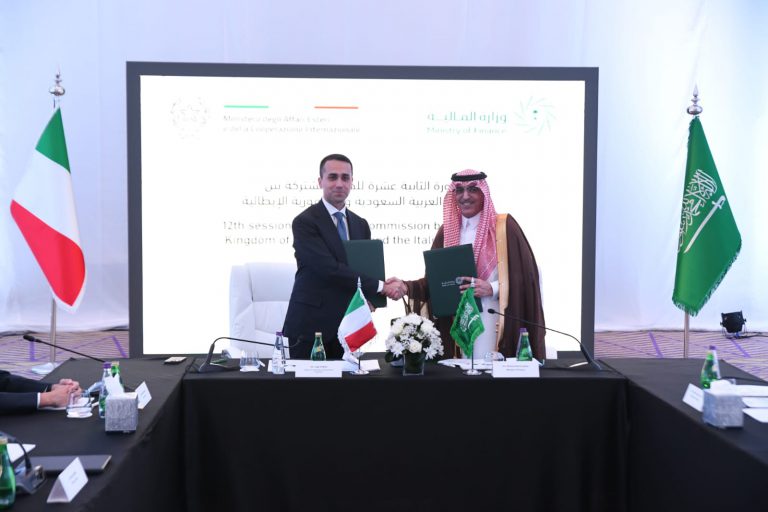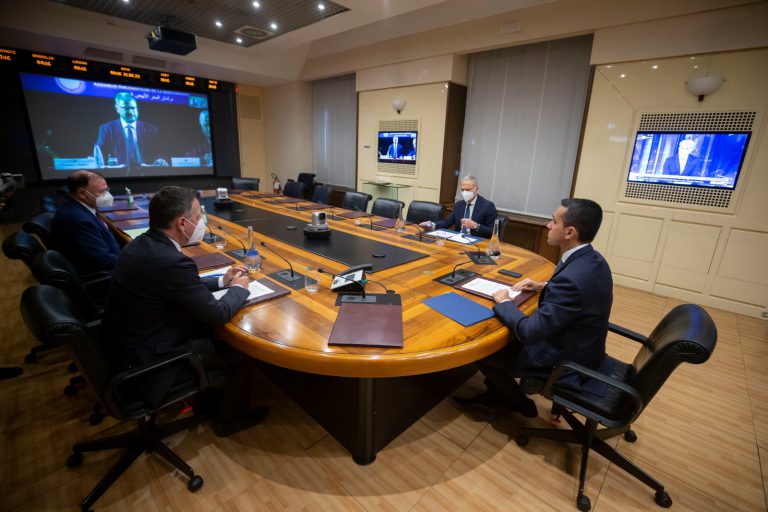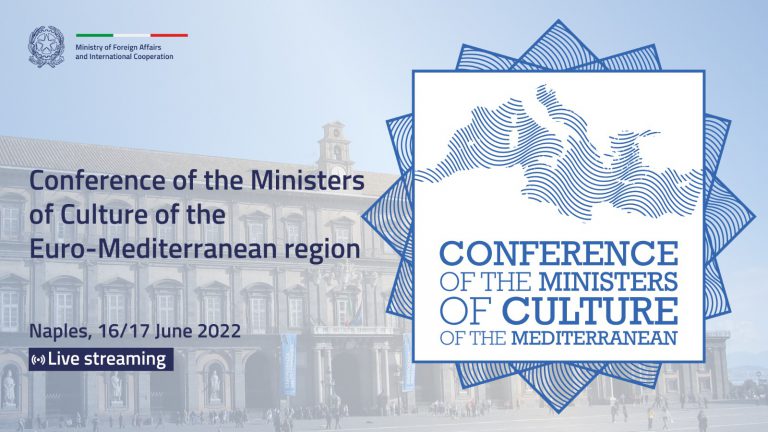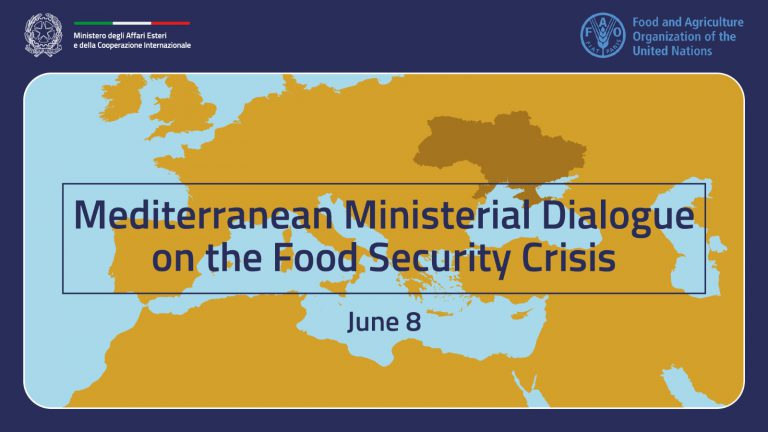The decisions the Italian Government has made in relation to the Libyan crisis have been intertwined with the tragic kidnapping of four Italian nationals in Libya and the killing of two of them – Salvatore Failla and Fausto Piano: a tragedy that still has many obscure points. The Italian technicians were kidnapped on July 19 at 20:45 in an area seven kilometres away from the Mellitah Oil and Gas Industrial Complex, which is a joint venture between Eni and the Libyan National Oil Corporation. Our four nationals, Salvatore Failla, Filippo Calcagno, Fausto Piano and Gino Pollicardo, employed by the international general contractor Bonatti, were riding on a minivan heading to Mellitah after crossing the Libyan-Tunisian border of Ras Ajdir when two SUV vehicles approached them and brought them to a halt. Armed men wearing masks and military-type uniforms, so it seems, got off the vehicles, forced the Italians to follow them and left the Libyan driver behind. The driver was a native of Sabratha who had been working for Bonatti for about a year. There have been no indications so far that could relate the event to any Daesh group operating in Libya and no claim has been made in that respect. We have been investigating several hypotheses, but it seems likely that it was an action carried out by a pro-Islamic criminal group operating in the area comprising Mellitah, Zuara and Sabratha. The Italian intelligence services promptly mobilized all available resources, both human and technological, and of course started all possible collaboration with our local and international partners, so as to coordinate operations both centrally and locally. There was constant contact between the intelligence people and the crisis unit of the Foreign Ministry. As part of intelligence activities, information was acquired from some human sources and technical investigations were carried out. The possible places of detention, however, could not be reliably and accurately identified.
On the afternoon of March 2, during some routine patrolling of the territory by local forces based around the city of Sabratha, a convoy consisting of two or three Toyota Tundra pickups engaged in a firefight in the southern part of Sorman. There were nine victims – among them, unfortunately, our two compatriots, who had been picked up from the hiding place where they were being detained with the two other Italians, presumably in order to transport them in two separate relocations.
Early in the morning of March 4, Gino Pollicardo and Filippo Calcagno – who had been left unattended in the place of captivity – managed to escape and reach the city of Sabratha, where they got in touch with their families and with the Tripoline and Italian authorities. Based on the emerging evidence, the four compatriots were still in the hands of the same group. The place of imprisonment was changed only once before these events took place. For reasons of their own, the kidnappers hinted that the hostages had been separated or had been passed over to other groups. This claim has turned out to be false.
No ransom had been paid. There is no evidence that the release of the hostages was imminent. There is no evidence that some passports belonging to Daesh groups were found in the detention place.
The search for truth is our duty. The Prosecutor’s Office of Rome is seeking truth and Parliament rightly demands it. But this does not mean that we should in any way endorse opinions and insinuations coming from sources who are clearly intent on exploiting the event for various reasons. It is in circumstances like these that we are called upon to show others that Italy sticks together, that it gathers around the families of victims, that it welcomes its fellow countrymen who survived and that it sides with the security forces out in the field who are still working to fly home the bodies of our countrymen. This is how a great country behaves, at least when events of this type take place: it puts all political disputes and contrasts aside.
The kidnapping and even the painful process of repatriation of our compatriots calls our attention to the critical and dangerous nature of the situation in Libya. Five years after the fall of Gaddafi, the country is divided, fragmented, ravaged by a harsh conflict. It hosts Daesh and other jihadist groups.
Faced with this picture, I believe that Parliament should put our national interest at the forefront. What is our national interest? Our national interest is to prevent the ongoing disintegration process from continuing or worsening. Our interest is to prevent the collapse of Libya – in short to prevent a collapse that would transform the country into a powder keg and worsen the already incipient humanitarian crisis. Failed states are now more dangerous than rogue states, said President Obama at the recent United Nations General Assembly.
We have to avoid a collapse and re-weave the fabric of sovereignty. A legitimate government is needed to reconcile Tripolitania, Cyrenaica, Fezzan and the great number of militias in Libya. To gradually regain – and more than a few weeks will be needed – control of the territory, so as to isolate Daesh, combat the smuggling of human beings that has fuelled illegal immigration, and valorize the many resources of Libya. This goal was set by our government – a government that has been able to set out on this path – in mid-December, at the conference organised in Rome by Italy and the United States, which paved the way for the December agreements of Skhirat in Morocco and, immediately after, for UN resolution 2259.
We strongly believe that thanks again to Italian involvement this goal is now finally achievable after a year-and-a-half of stalled negotiations with Libya. However, as is quite clear, we have not yet reached this goal. From the very first moment I have not hidden the fact that the process which started in Rome in mid-December was fragile. After all, how could such a plan be anything other than fragile given the fact that the region had been subject to a permanent and dramatic disorder? How could such a path not be stony in Libya? Those who know this country, even only superficially, are well aware of its complex and fragmented conditions, which are certainly not only connected to the two institutions – the HoR of Tobruk and the GNC of Tripoli – on which the mediation process and the United Nations Agreement depend.
However fragile, Honourable Senators, this is the only avenue to follow. There is a group of MP’s that are called to give a confidence vote on the new Libyan government: I’m referring to the majority of the 101 MP’s of the HoR of Tobruk. This majority was prevented from expressing itself at the last meeting that took place ten days ago. On Wednesday, in New York, the United Nations Security Council discussed the ways in which this majority could be allowed, despite the boycott of the extremists, to express itself in some way. We will support this attempt to allow this majority to express itself and finally give the green light to the government.
Again, let us have no illusions: it will be only a first step. We will then need to include other sectors and forces that today have not yet taken part in this process which needs to be stronger and more inclusive. After that, the government will have to be transferred to Tripoli. This is a challenge that the Italian General Serra has been working in recent weeks on behalf of the United Nations. Meanwhile, Italy will have to continue its efforts on the humanitarian commitment for the emergency aid plan – a commitment that the Italian Government confirms – which provides assistance to those who have been injured in the Libyan clashes.
This legitimized Government will present its requests and it is within this scenario that the ministers of defence, coordinated by Minister Pinotti and by Italy are working. We are working to address any possible security request coming from the Libyan government, nothing more and nothing less – in compliance with the Constitution and according to a UN resolution that requires it. Of course, we will proceed only after Parliament’s green light, as the Italian Prime Minister stated a few days ago.
I know that following this path – which is full of obstacles – may seem too slow. I am very well aware of the growing strength of Daesh in Libya. Paradoxically, it was after the coalition retook some 40 percent of Iraqi territory occupied by Daesh that some Daesh fighters decided to move into Libya. According to our analysis, there are currently some 5,000 Daesh fighters there. As you probably know they are mostly in Sirte, from which they can launch dangerous raids against the so-called “oil crescent” – Ras Lanufe and the neighbouring area – and the North-western part of Libya. I’m referring to the incidents that took place some three weeks ago in Sabratha and to the operation the day before yesterday in Tunisian territory, just a few kilometres off the North-western border of Libya.
The 5,000 fighters on the ground are often in fights with the Islamic militias, especially in the Tripolitania area. We know, however, that there is always the risk that a macabre Daesh franchise may be established, that is, local groups that come together under this self-styled Islamic State. From this terrorist threat Italy has to defend itself and Italy will defend itself, as required by Article 52 of our Constitution. After all, this is the reason why Parliament in December decided that, in some cases, intelligence operations could call for the support of military units to guarantee adequate safety conditions. Of these operations Parliament will be informed through the COPASIR, as required by law no.124 of 2007.
One thing must be clear: the fight against terrorism must be based on an extraordinary intelligence effort and, when necessary, on limited actions, on a response proportionate to the actual threat and agreed upon between allies. However, it is not by fighting against terrorism that we can expect the situation in Libya to become stable. We should not confuse legitimate defence with the stability of Libya. This would not be helpful and instead could lead to dangerous outcomes. To those who brandish the threat of Daesh – which is real and from which we must defend ourselves – to invoke military operations, we reply that military interventions are not the solution; sometimes, they might even worsen the problem. I want to remind those who rattle off figures of soldiers ready to leave and who say that Italians are called to do what all others are doing, that Libya is a country six times the size of Italy and that it has some 200,000 armed military. No, it’s not really an easy theatre for aggressive performances. In short, the government is not responsive to the roll of drums and will not be influenced by interventionism. The government will defend the country from terrorist threats with appropriate, proportionate measures. The Government will intervene, if and when possible, to satisfy the security needs of a government which is legitimate and which has pledged gradually to regain control of its territory and sovereignty. It will do so on the decision of Italian Parliament and allied forces. The Government will not be dragged into unnecessary adventures which may even turn out to be dangerous for our national security. We are counting on Italian Parliament’s support for a line that has must combine firmness, prudence and responsibility.







